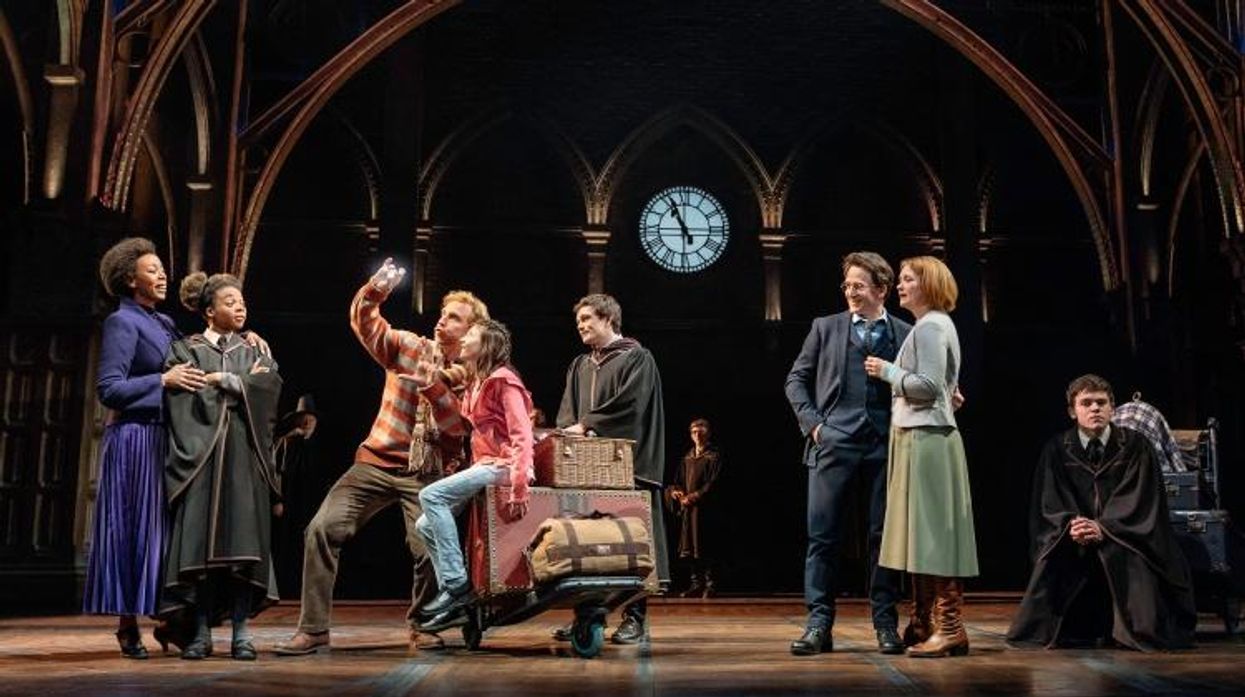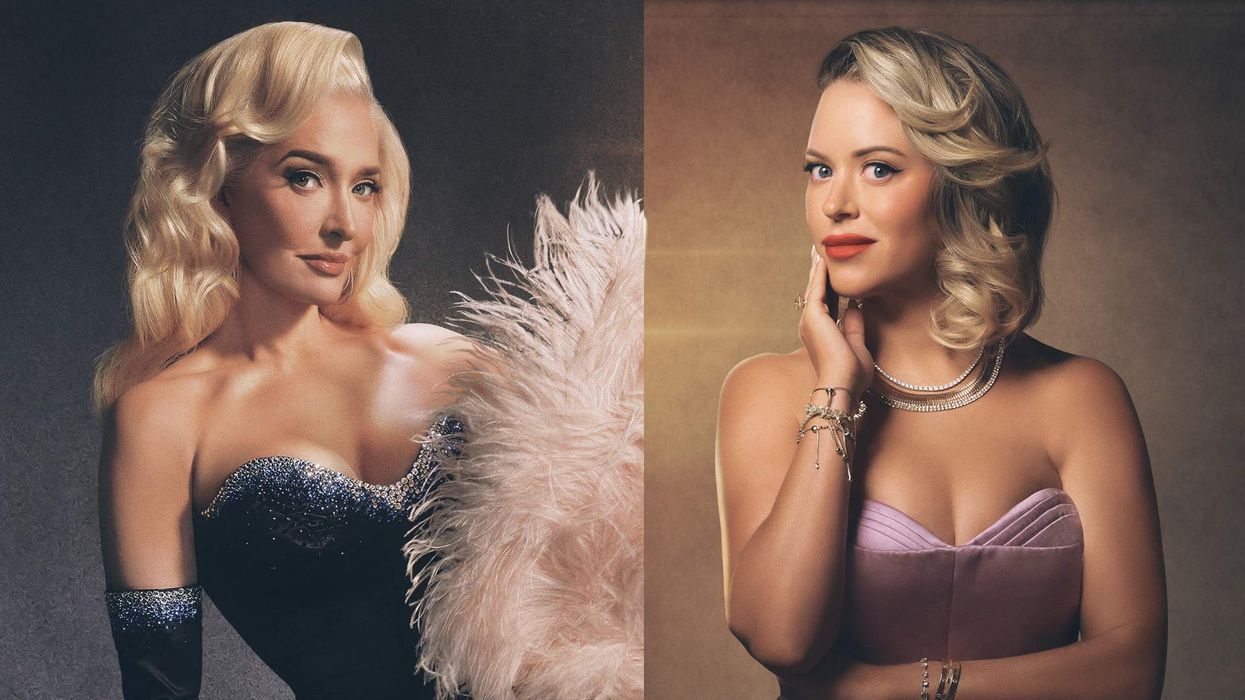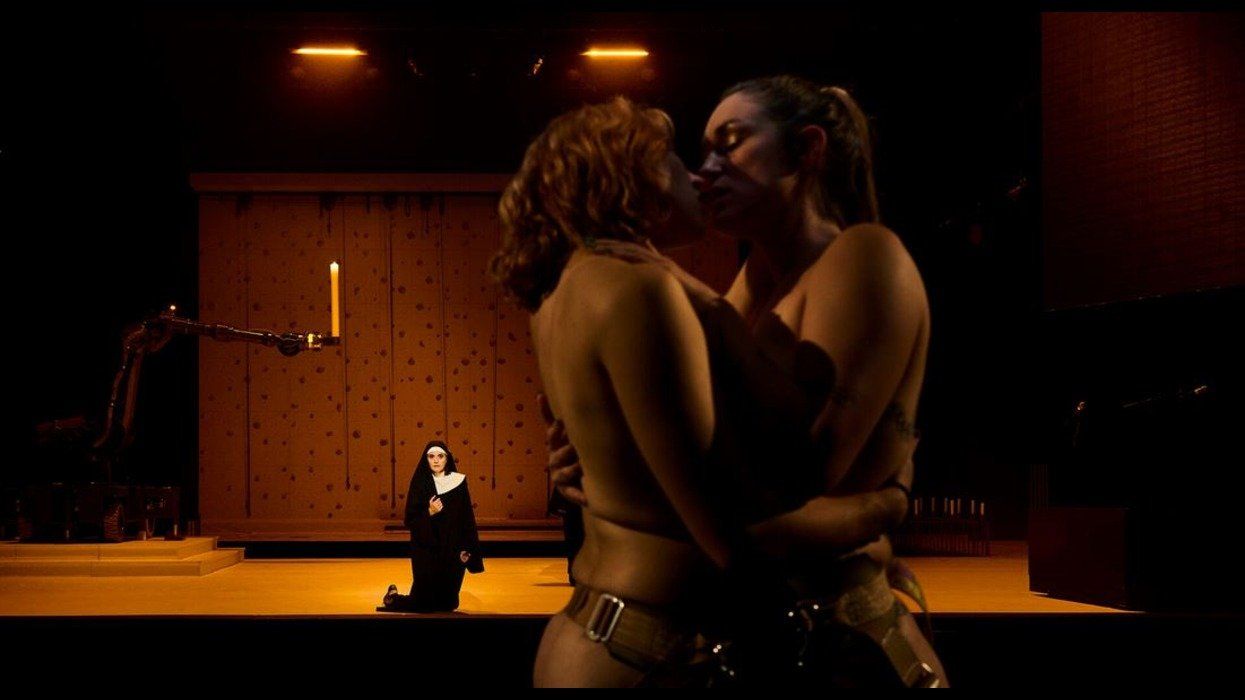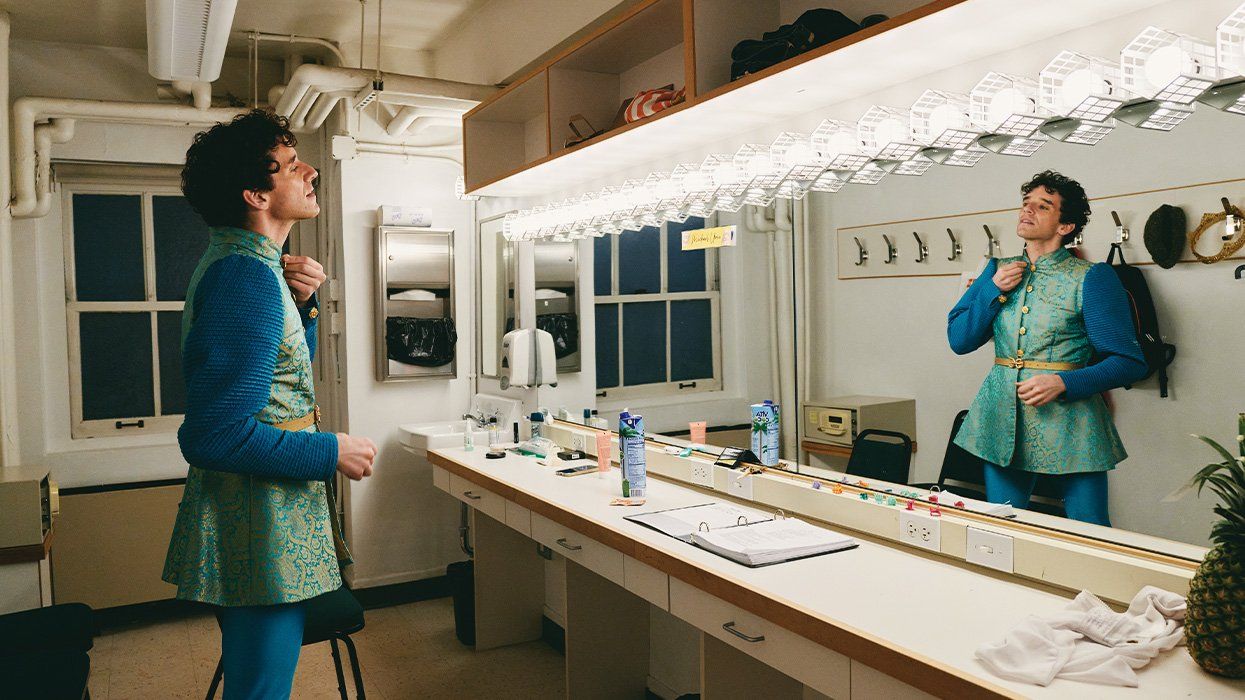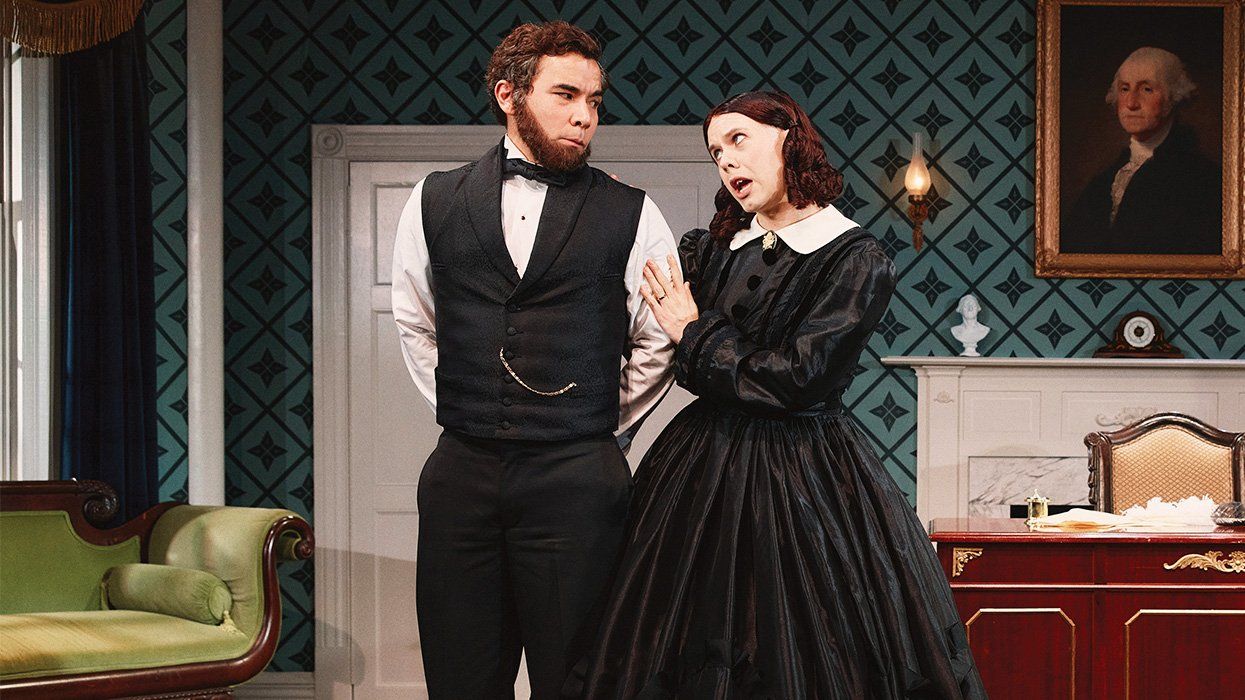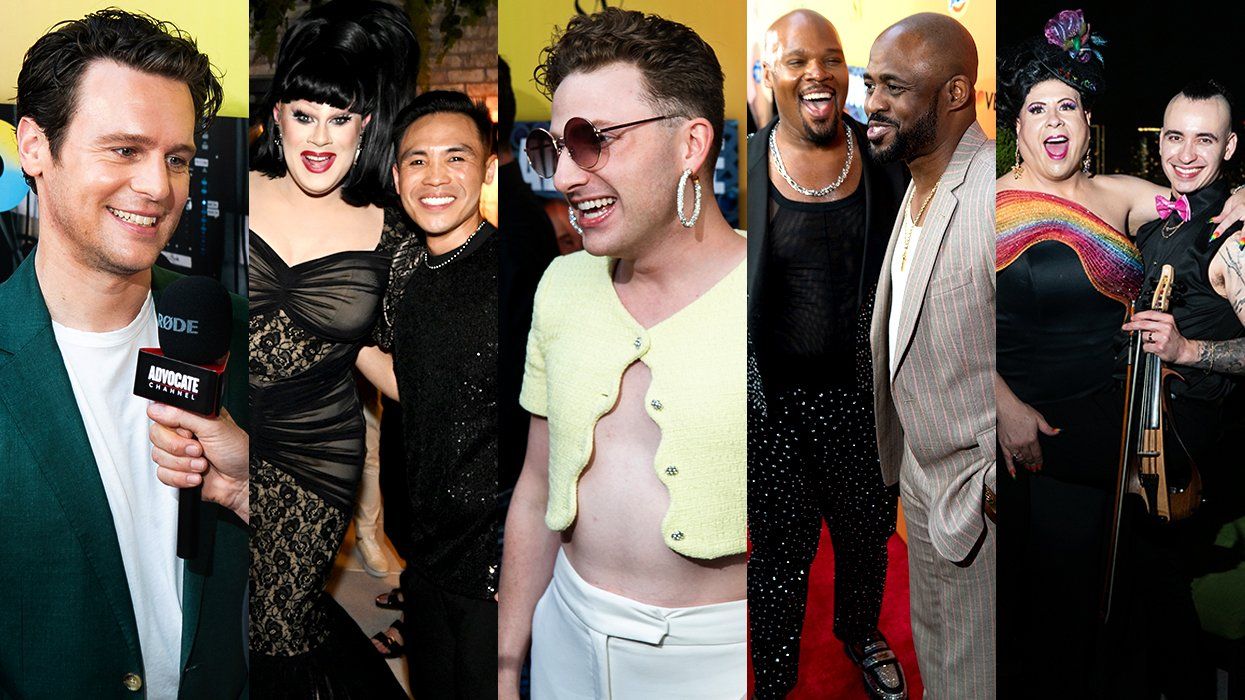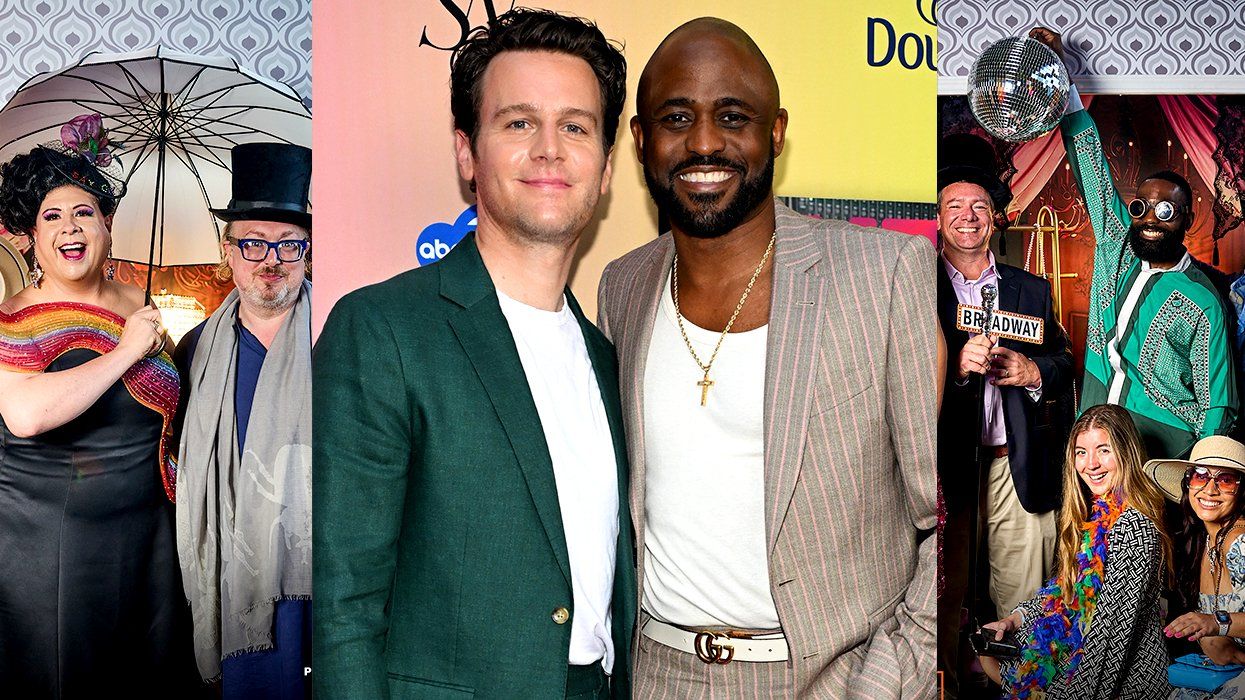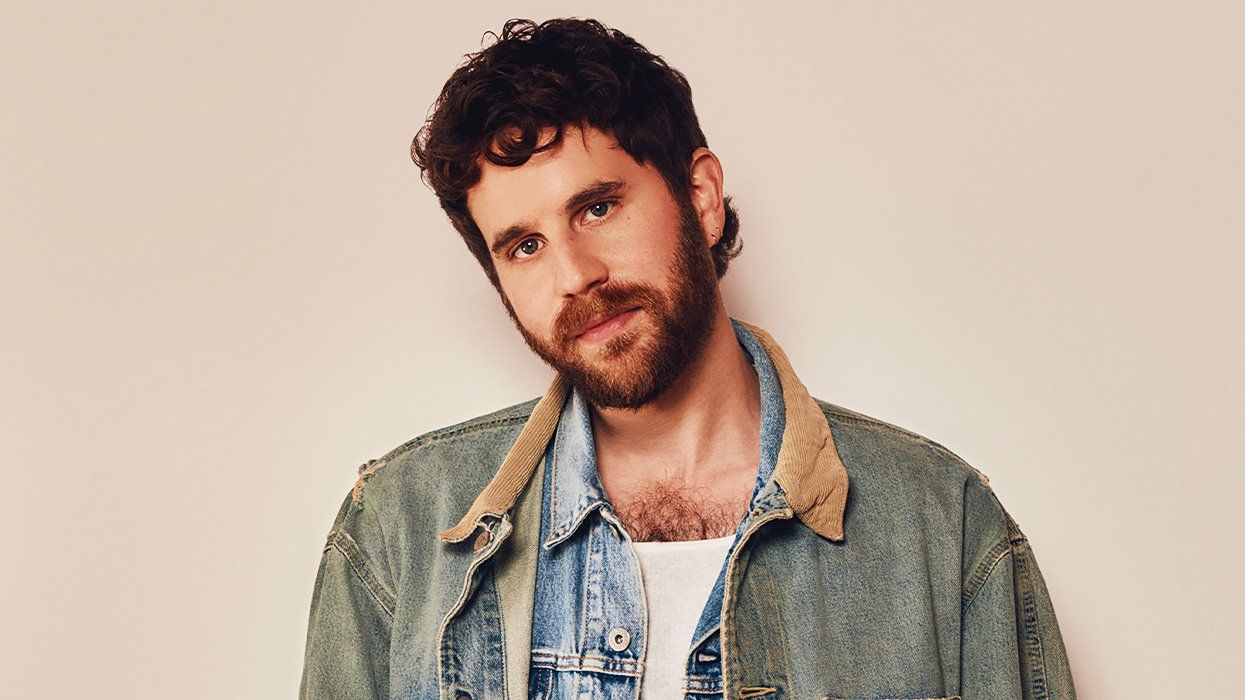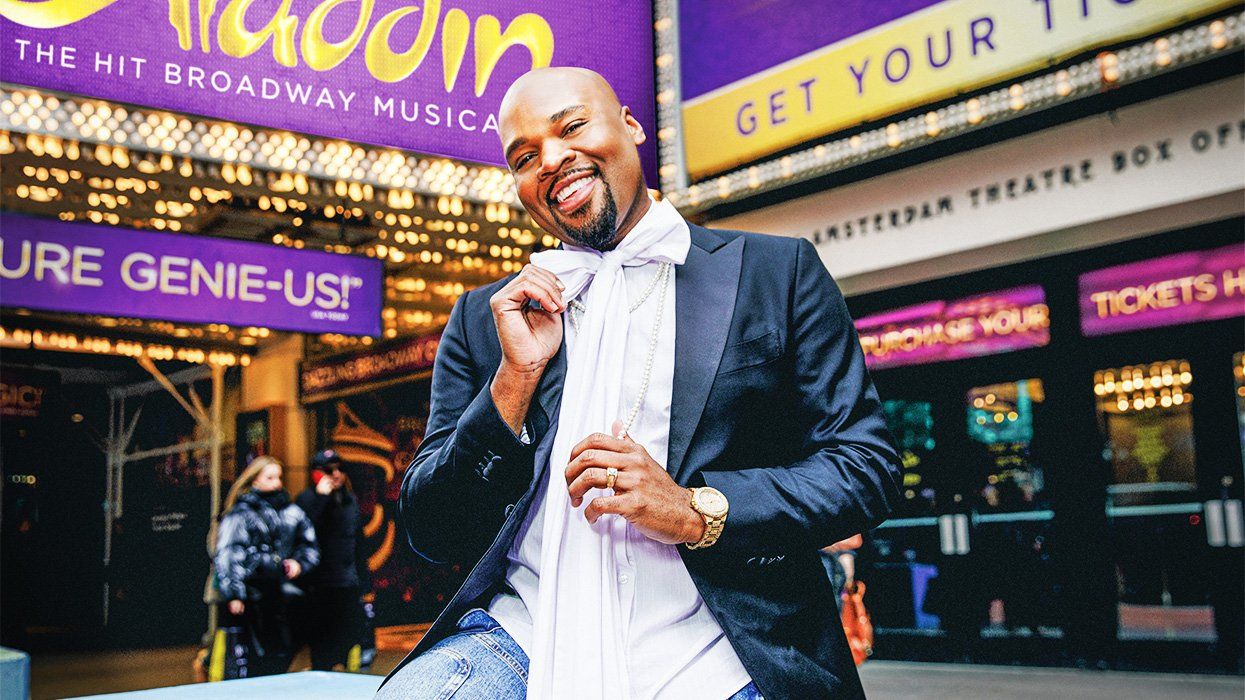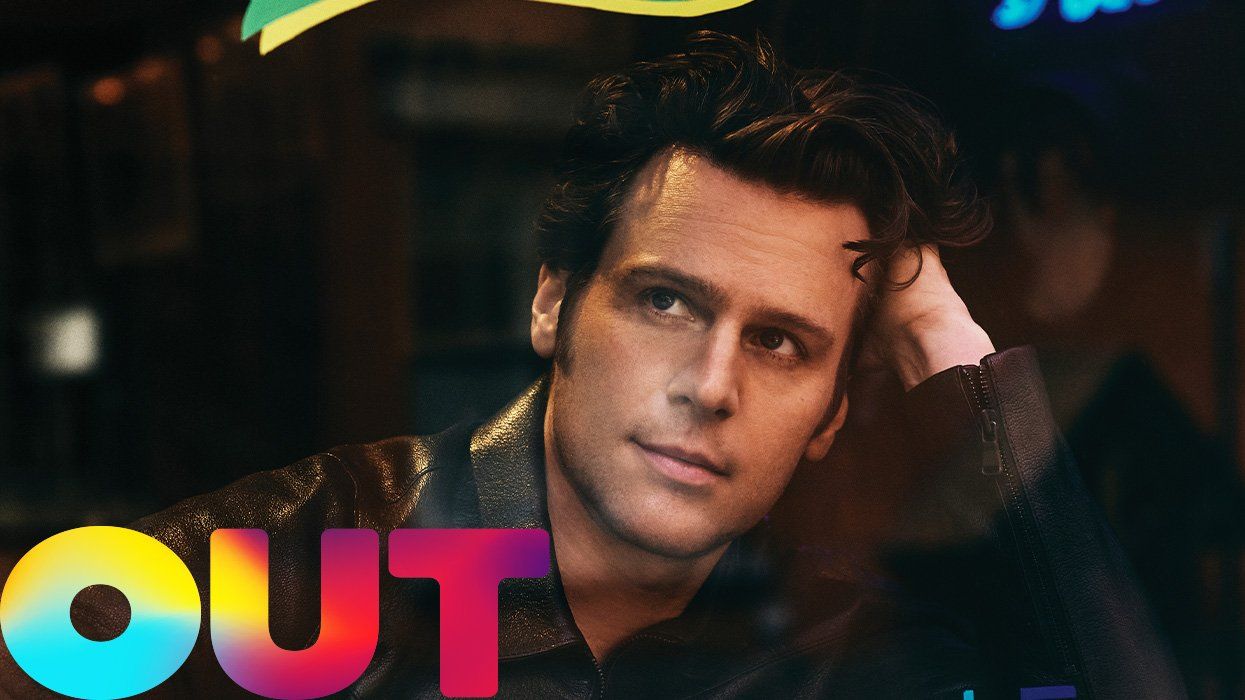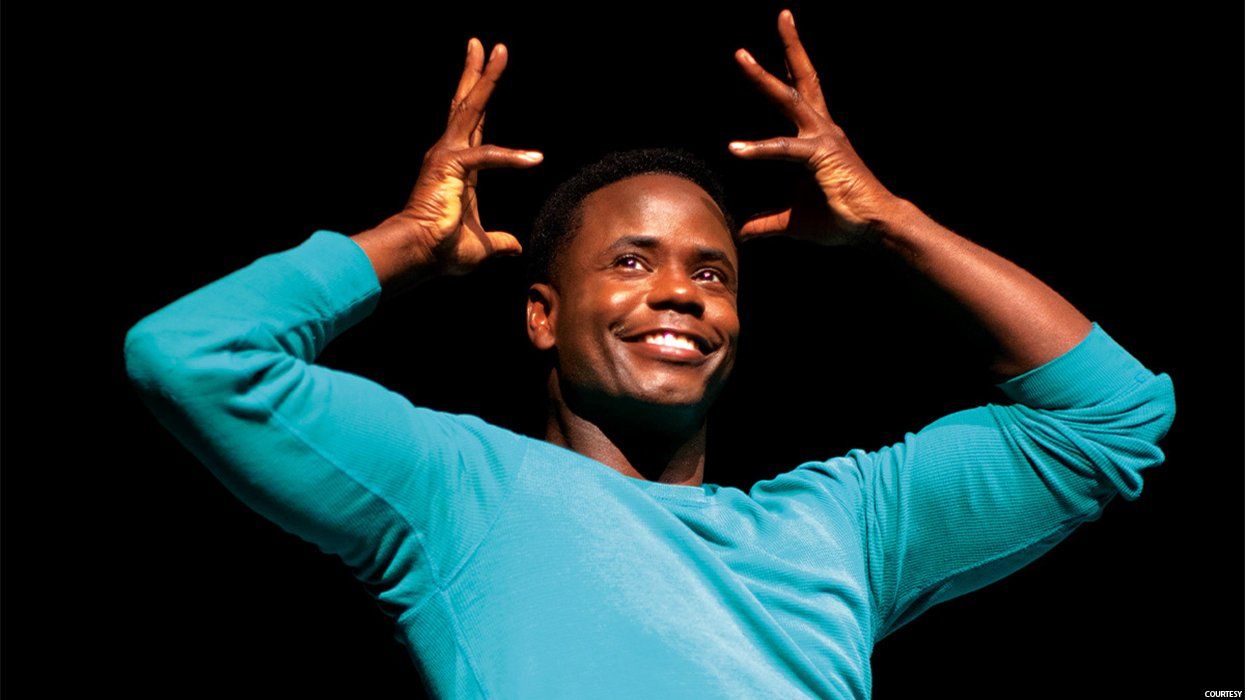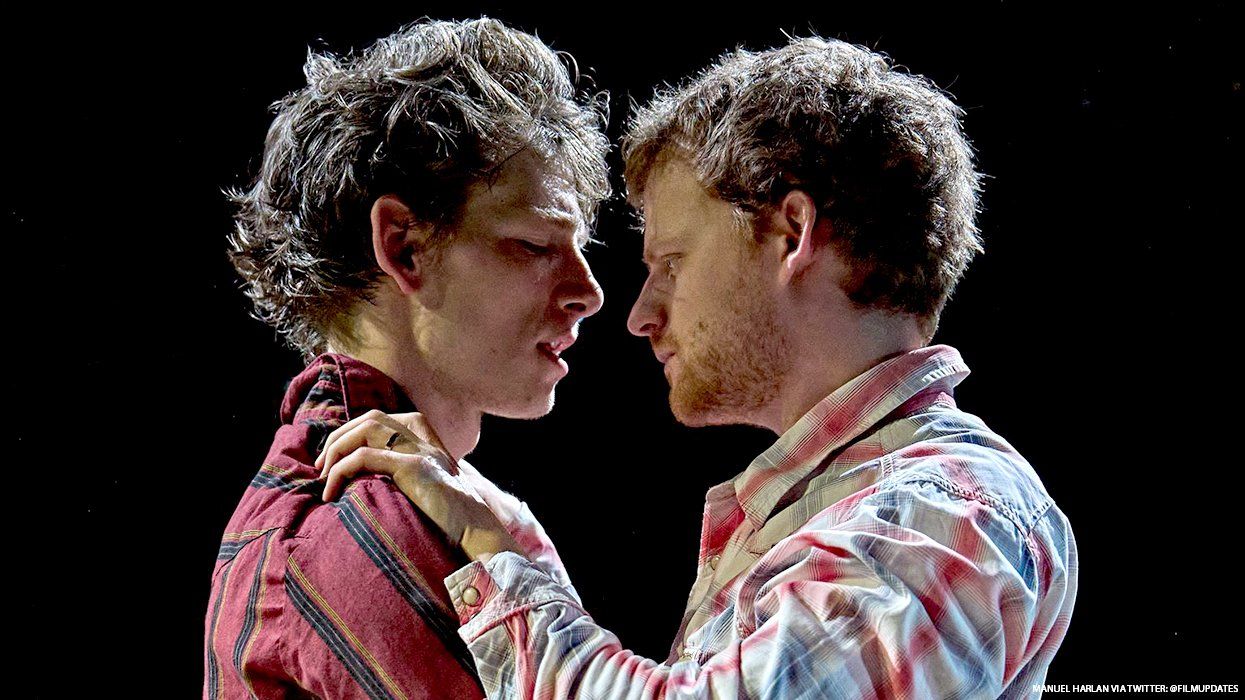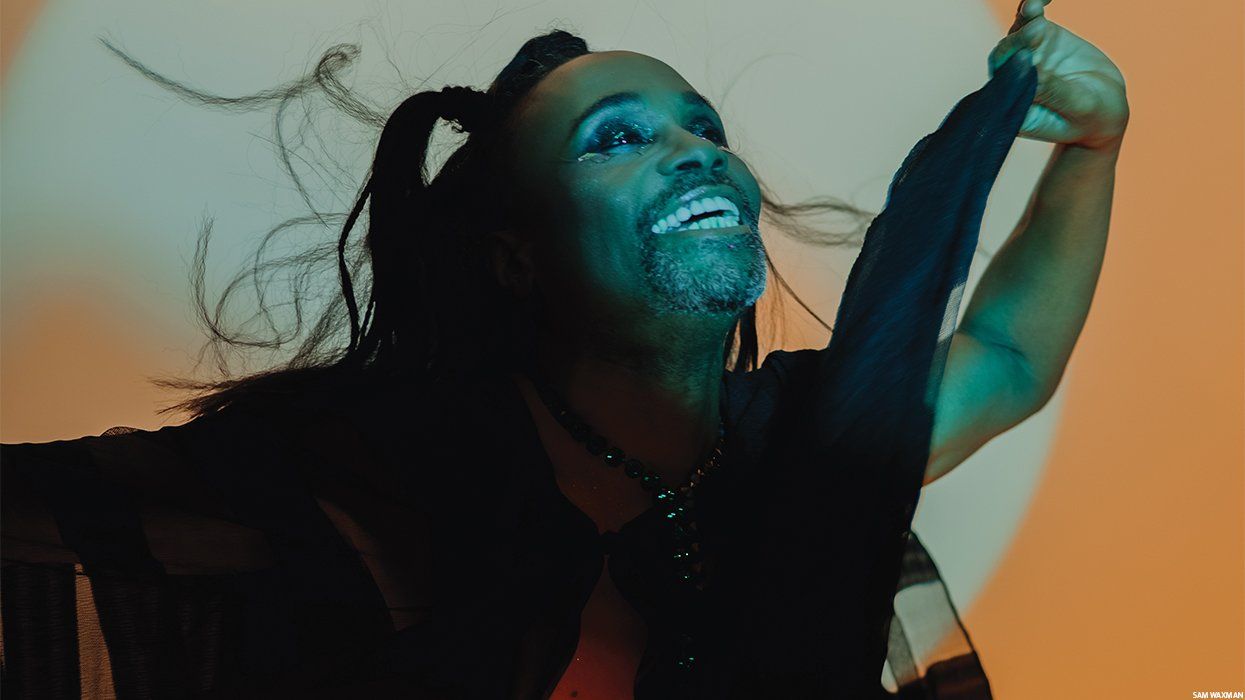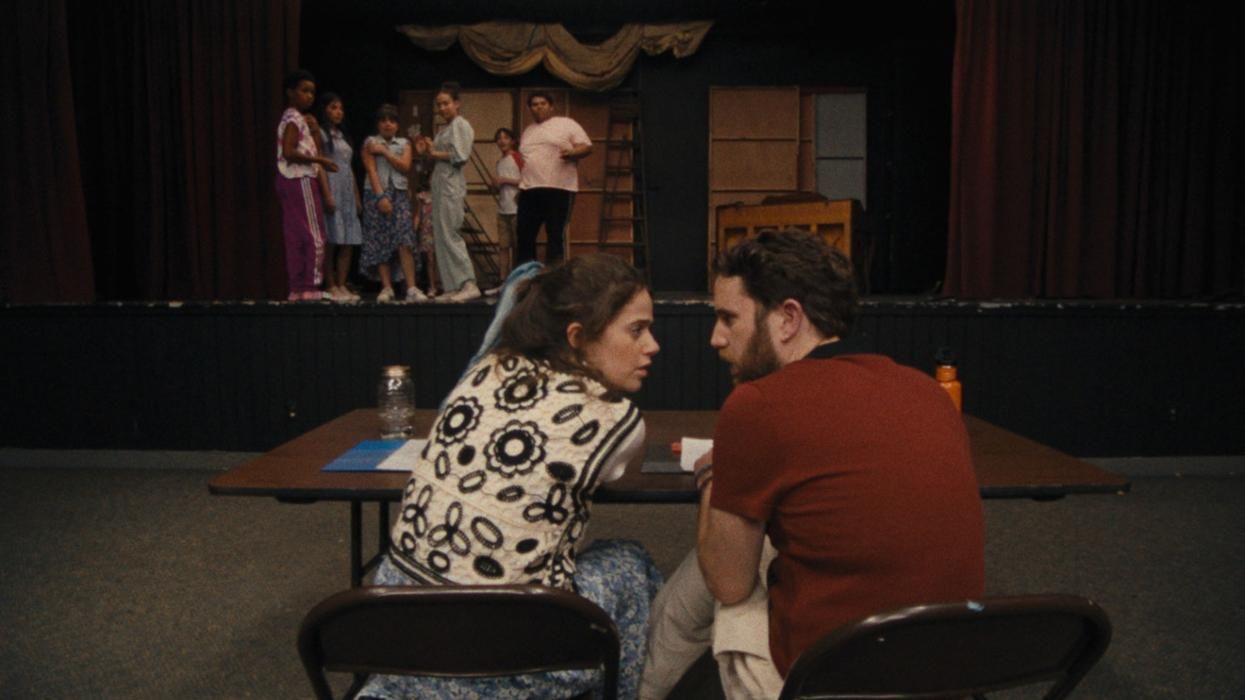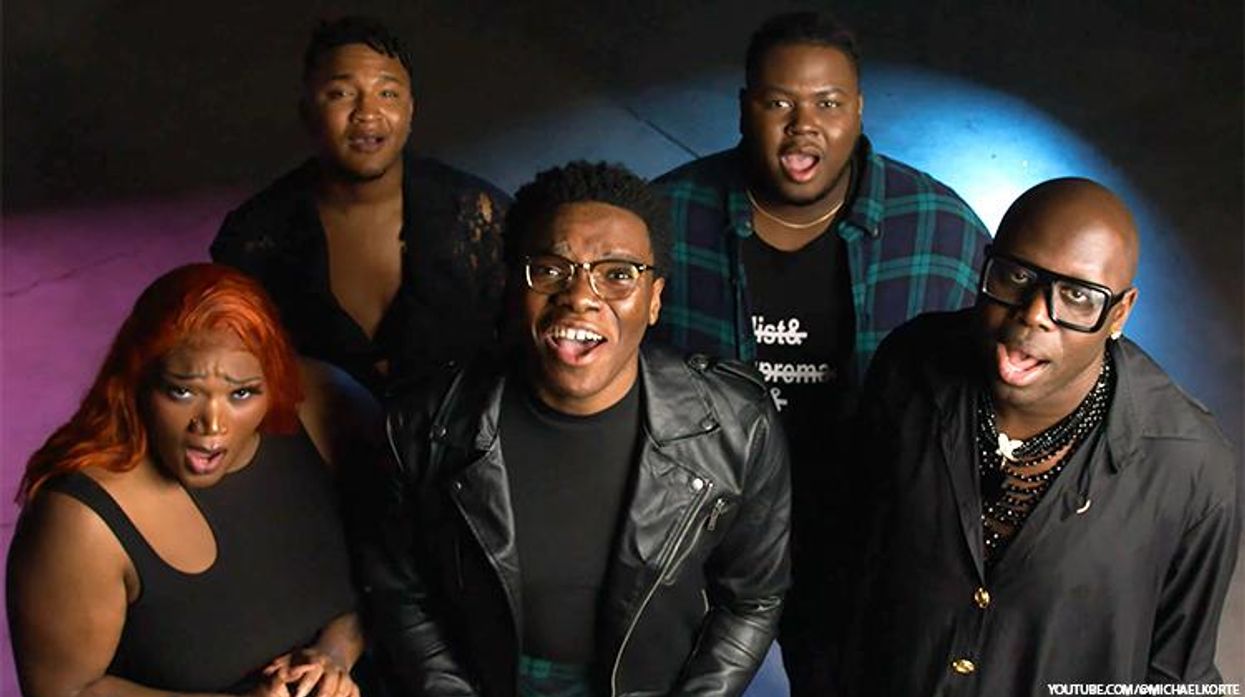Harry Potter and the Deathly Hallows ended with the line, "all was well," but as it turns out in Harry Potter and the Cursed Child -- the two-part theatrical juggernaut that made its Broadway debut this weekend two years into the original London production's blockbuster run -- all is not well for Harry, Ron, Hermione and especially their children.
Cursed Child, picks up right where Rowling's epilogue left off, with Harry (Jamie Parker) and Ginny (Poppy Miller) seeing their youngest son Albus (Sam Clemmett) off at Platform 9 3/4 for his first year at Hogwarts. Albus is worried about being sorted into Slytherin, and his father assures him that even if he is placed in Voldemort's alma mater, his parents will love him anyway. Albus' fears turns out to be well founded: not only is he sorted into Slytherin, the only friend he makes over his first few years at Hogwarts -- which pass quickly through montage -- is Scorpius Malfoy (Anthony Boyle), the only child of his dad's boyhood nemesis Draco (Alex Price), who is rumored to have actually been fathered by Voldemort himself (Voldemort's sex life gets a surprising amount of stage time). Albus becomes increasingly alienated from his father, who he is always compared to and always falls short of. As his son struggles at school, Harry and his friends become worried that Voldemort's followers may be planning something nefarious, a fear that's confirmed when they confiscate an illegal Time Turner. Albus, looking to defy his father and gain some glory of his own, steals the Time Turner and sets off with Scorpius on a trip through some of the original series' most iconic moments, mucking things up mightily along the way.
If that sounds like a lot of plot, it is -- and that's only the first act or so. There are four acts stretched out over the play's two parts, which audiences can see consecutively over two evenings or in a marathon viewing in one day, including a matinee. At nearly six hours, Cursed Child is a lot of story, and would be exhausting if it weren't for the magic -- both fictional and practical -- that happens onstage. The special effects, designed and applied by Jamie Harrison, are nothing short of breathtaking. Characters disappear, levitate, shoot off jets of flame from their wands and transform into other characters before the audience's eyes. Whenever the Time Turner is used, the entire set ripples in an effect that had the entire theater gasp and applaud. Cursed Child knows that the audience is expecting a spectacle, and it not only rises to that expectation, but flies far above it. Buffeted by a few dance sequences, dozens of swirling capes, meticulously choreographed action and a soaring score by Imogen Heap and director John Tiffany's production is nothing short of jaw-dropping.
But while the illusions and magical are awe-inspiring, they can't quite make up for the flaws of the script, written by Jack Thorne and based off a story conceptualized in part by Rowling herself. There are far too many plot holes and convenient deus ex machinas, which are all the more glaring when one considers how meticulously plotted Rowling's novels are.
And that is where Cursed Child ultimately falls short of its source material: Jack Thorne is no J.K. Rowling, and while he does a fine approximation of her voice, he fails to truly nail the voices of her beloved characters. Hermione, well-played by Noma Dumezweni, is woefully underused, and Ron (Paul Thornley) serves mostly as a human punchline. Albus and Harry's troubled relationship is the focus of the play, and another fantasy narrative about fathers and sons isn't what anyone needed. Nothing defined the Harry Potter series more than death -- it was written after Rowling lost her mother, and loss colors every part of Harry's experience. There is something to be said for the evolution of Harry's story being about an orphan learning to be a parent, but it's a theme that is hammered into the audience with all the subtlety of a bludger. It feels, ultimately, like an expensive work of theatrical fanfiction -- your favorite characters are all there, but they're not acting quite like they should be.
The best thing about Cursed Child is that it makes a compelling argument that other artists be given the chance to play in Rowling's sandbox. These stories have surpassed the woman who wrote them, and mean so much to so many people, that to limit them to one storyteller is a disservice to both the fans and the world Rowling created. Star Wars is a fantastic model to follow -- long before the revived franchise was breaking box office records and handing the narrative reigns over to fresh blood, there were dozens of novels and an animated series that helped to further expand George Lucas' sci-fi universe. Watching the play, I couldn't help but imagine how it would have changed if written by a woman, or a queer person, or a person of color. Why shouldn't we get a novel about life at Beauxbatons, or a comic book about Squibs trying to make it in the Wizarding World, or an animated series about the Hogwarts years of Harry's parents, or a police procedural TV show about aurors hunting down dark wizards? Harry's story is obviously one we're invested in, but the world Rowling created is bigger than Harry Potter, and hopefully she can let go of it enough to give others the chance to enrich it with new adventures.
Harry Potter and the Cursed Child, Parts One and Two is now open at the Lyric Theatre. Tickets are available at the play's official website.


